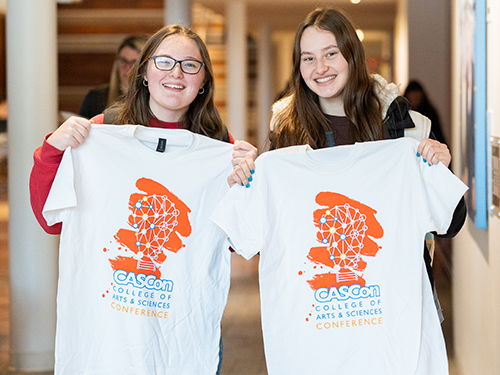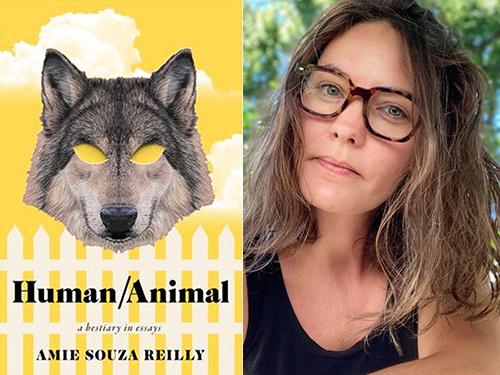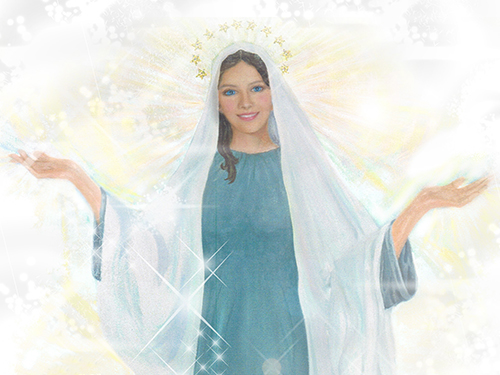
Minor in Health Humanities
Inclement Weather: February 25, 2026
All classes starting prior to 11 a.m. will be remote. Classes after 11 a.m. will be in person. Non-essential staff should work remote until 11 a.m. then report to campus as scheduled.
Learn to apply your humanities skills to questions of care, medicine, illness, disability and the relationship between the patient and clinician with an 18-credit minor in health humanities.
What is Health Humanities?
Health humanities is an interdisciplinary field that applies humanistic methods to health, disease, illness and the body. In this minor, students will practice skills of listening, close reading, interpreting, reflecting and analyzing found in the study of literature, history, philosophy, anthropology, religion, the visual arts, music, dance and theatre. These skills are then applied to the study and practice of the health professions.
Why study the Health Humanities at Sacred Heart?
The health humanities program encourages self-reflection and a whole person approach. With a minor in health humanities, students pursuing the health profession will be more competitive applicants for graduate school and jobs in the fields. For students who are not in a vocational track in health, the program will introduce concepts of ethical care, patient advocacy and cultural competency, which can help them navigate the health care system for themselves or family members.
Program Requirements
Students must take HH 101 and must cover at least four out of the five different areas below (6 credit maximum per area).
Required Course
This interdisciplinary course introduces students to the field of health humanities, which applies the humanistic disciplines of literature and languages, philosophy, religion, anthropology, history, and the arts to the study of the body, health, illness, and disability. Students will learn techniques of literary, cultural, and historical analysis, as well as religious and ethical debates in the growing field of health humanities and narrative medicine. Critical reflection about the human experience in relation to health is the cornerstone of the course. The course will serve as the basis for the minor in health humanities, and as a course in the LAE, Humanistic Inquiry and Social and Global Awareness.
Health & Literature/Language Courses
ENG 299 can be taken in consultation with program director
This Humanities (English) elective examines the way that American authors have represented disability, both physical and mental, and explores what these representations reveal about the world in which we live. The class will distinguish between nonfictional narratives composed by writers with disabilities and fictional texts written about characters who have been marked as different or abnormal.
Prerequisite: Take FYS or FYWS 125
This course takes an interdisciplinary approach to the study of the human journey through illness and healing; its primary focus is on personal stories told by patients and dedicated healers. Readings included will speak to issues of gender, race, ethnicity, religion, class, sexual orientation and how it can affect the experience of being wounded or ill. The relationship of the health care system in regards to patient, provider and institution, will be addressed.
This course teaches students how to write creatively in response to narratives about illness, trauma, suffering, and healing.
Prerequisite: Take FYS or FYWS 125
This interdisciplinary course examines the representation of various types of psychological trauma in contemporary fiction.
Prerequisite: Take FYS or FYWS 125
Designates new or occasional courses that may or may not become part of the department's permanent offerings. Courses capitalize on a timely topic, a faculty member's particular interest, an experimental alternative to existing courses, etc. Prerequisites established by the department as appropriate for the specific course. Course title is shown on the student's transcript. Consult the current course schedule for available topics and current prerequisites.
The course introduces students to language skills needed in various professions in France/French-speaking world. Could include business, media, travel, health fields, etc. Survey of various fields or focus on limited number.
This course will introduce students to the Spanish language with an emphasis on developing speaking, listening, reading, and writing skills at a basic level with vocabulary and content related to the medical field and other health professions. The course will provide the necessary language skills to deal with general examination, symptoms, and prognosis and will also explore diverse Spanish-speaking cultures through a variety of materials and their role in health idioms and phraseology.
Health & Media/Arts Courses
MU 299, THR 299, DA 299 & AR 299 can be taken in consultation with program director
Development of the student's ability to conceive the human figure as form and volume with stress on gesture, proportion, and anatomy. Emphasis is on a refinement of techniques for individual expression and self-awareness. A prerequisite to AR 221, AR 250, and AR 262
Prerequisite: Take AR-120
New or occasional courses that may become part of the department's permanent offerings. Courses capitalize on timely topics, an instructor's particular interest, or alternatives to existing courses.
This course provides an overview of the critical and theoretical perspectives of health communication. Students will develop an understanding of the role media play in effective health messaging and campaigns.
Prerequisite: Take CM-101
In this course, students will analyze a self-help book of their choice through journal writing exercises outlined in their chosen text. Drawing on research in the field, students will evaluate the effectiveness of their chosen text.
This class will explore body image representations portrayed in popular American magazines from a media literacy perspective. Drawing on research about media influence and instructional capabilities from such researchers as Schramm, Bandura, Comstock, and Liebert.
These courses capitalize on timely topics, a faculty member's particular interest, an experimental alternative to existing courses, etc. The specific special topic will show on the student's transcript.
This course explores various current events and historical, social, and political issues as represented through dance. Through this course students will have a deeper understanding of a range of social issues as well as knowledge of how greater global awareness can be achieved through dance.
Designates new or occasional courses that may or may not become part of the department's permanent offerings. Courses capitalize on a timely topic, a faculty member's particular interest, an experimental alternative to existing courses, etc. Prerequisites established by the department as appropriate for the specific course. Course title is shown on the student's transcript. Consult the current course schedule for available topics and current prerequisites.
Designates new or occasional courses that may or may not become part of the program's permanent offerings. Courses capitalize on timely topics, a faculty member's particular interest, an experimental alternative to existing courses, etc. Prerequisites are established by the program as appropriate for the specific course. Course title is shown on the student's transcript. Consult the current course schedule for available topics and prerequisites.
Health & Catholic Studies Courses
Health & Anthropology/History Courses
The aim of this course is for students to develop an anthropological imagination and understand its relevance for living in the contemporary world. An anthropological imagination involves cultivating an interest in and an understanding of the unity, diversity, and development of human biology, society, and culture. As an introduction to the study of human cultural diversity, this course emphasizes the concept of culture, human sociocultural variation, and patterns of sociocultural change in contemporary human societies.
This course explores the topics of health, wellness, sickness and disease from an anthropological and cross-cultural perspective. In this course students will develop and understanding of the role of culture in the conceptualization of health and wellness and the pattern and treatment of sickness and disease. The course will also explore the role of socio-economic factors impacting on health and wellness and the patterns of treatment of sickness and disease. Finally, the course will develop a comparative, cross-cultural perspective of health, wellness, sickness and disease.
Prerequisite: Take AN 110 or SO 110
This course is a survey of the history of medicine beginning with the Greeks to the 21st century with an emphasis on how disease may have influenced historical events.
Prerequisite: Take HI-100 or HI-102 or HI-110 or HI-115
This course will trace the origins and development of Chinese healing from antiquity until the nineteenth century, and then examine how Western medicine was introduced to China and how the subsequent clash between the two forms of medicine led to their uneasy co-existence today, both in china and in countries like the U.S.
Prerequisite: Take HI-100 or HI-102 or HI-110 or HI-115
Health & Philosophy/Religion Courses
Introduces phenomenology as a working method for philosophical reflection on lived-experience. Topics include the distinction between the natural and phenomenological attitudes; the intentional structure of consciousness; the basic analysis of cognitive, evaluative, and volitional experience; and the phenomenological critique of naturalism, dualism, and subjective idealism.
Prerequisite: Take a 3 credit Philosophy course
Examines some of the most important texts in the philosophical tradition on the questions of happiness and human flourishing.
Prerequisite: TAKE A PH COURSE
Investigates theological conception of the human person in light of Christian revelation and asks: In what way is a person like God? What do we mean by human nature, sin, grace, and free will? Can the traditional Christian and the modern scientific notions of humanity be reconciled?
Prerequisite: Take a 3 credit TRS course
Investigates the varied aspects of Christian eschatology-that is, the unfolding of the future in relation to the cosmos and to the individual. When, how, and why does the world end and where does the individual fit into all this? Topics covered include theological discussions of time, the future, the human soul, death, the intermediate stage, and the journey of the Christian community and the human family into the future.
Prerequisite: Take a 3 credit TRS course
Using methods and principles of biomedical ethics, explores several ethical issues in medical practice and healthcare policy. Frameworks employed include religious/ethical perspectives in Christianity and some other religious traditions, as well as philosophical and social theories. Topics may include euthanasia, reproductive technologies, confidentiality, human subjects, and allocation of healthcare resources.
Prerequisite: Take a 3 credit TRS course
Explores cultural, religious, philosophical, scientific, medical, and literary perceptions of death, dying, and grief. Develops theological and ethical frameworks to guide care and communication in end-of-life situations.
Prerequisite: Take 3 credits TRS course
More Information
The Latest in English
View More News-
 AcademicsPublished:Connecting students with faculty research across the College of Arts & Sciences, the event fosters engagement, collaboration and academic discovery.
AcademicsPublished:Connecting students with faculty research across the College of Arts & Sciences, the event fosters engagement, collaboration and academic discovery. -

Professor’s Book Makes Two ‘Best of 2025’ Reading Lists
Faculty & Staff SpotlightPublished:Author blends her own illustrations, personal essays and animal-related verbs to create modern-day bestiary -

Sacred Storytelling Connects Longtime Friends
Faculty & Staff Spotlight, Student Spotlight & OutcomesPublished:Sacred Heart, faith and friendship serve as foundation for a partnership in the sacred retelling of the life of Mary, Mother of God

